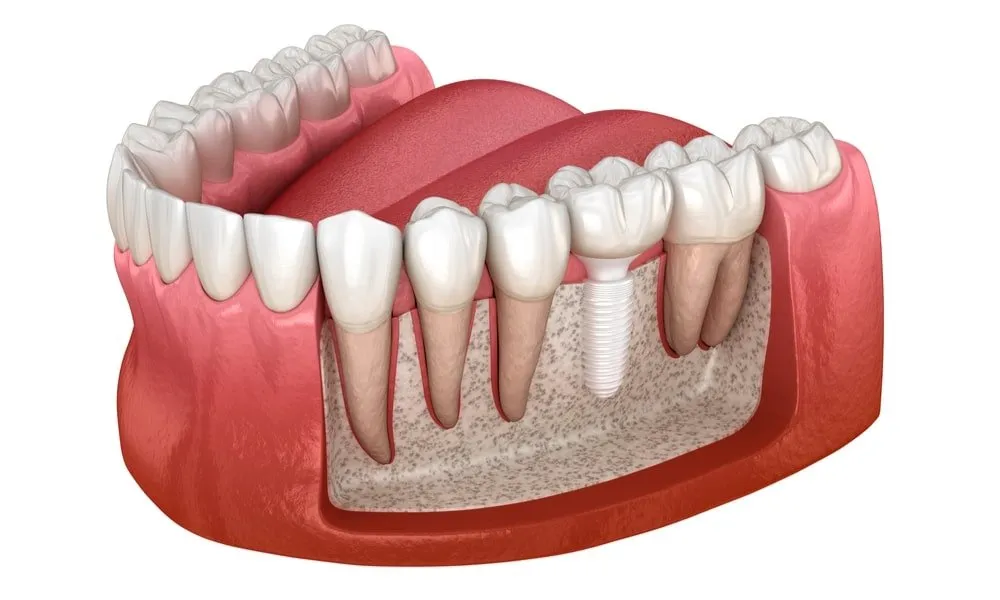Are you suffering from tooth loss? Do compromised oral functions and aesthetics trouble you? Replacing missing teeth is crucial and should be addressed at the earliest to prevent adverse consequences like ridge resorption, poor mastication, and compromised speech. Dental implants are offered by the family dentist in Marysville, WA Marysville, WA dentist, and their expert team can permanently replace missing teeth with ease and comfort.
Let’s unwind everything about dental implants to be well-informed before getting one!
What are dental implants?

A dental implant is a small, screw-shaped titanium post that is surgically placed into the jawbone to replace a missing tooth root. It serves as an anchor for a naturally looking crown or bridge, restoring the appearance, function, and health of your smile.
Dental implants are designed to mimic the structure of a natural tooth, consisting of:
- Implant body (the titanium post)
- Abutment (the connector)
- Crown (the artificial tooth)
Implants are made from biocompatible materials, such as titanium, and are designed to integrate with the surrounding bone and tissue, providing a strong and stable foundation for your new tooth.
What are the types of dental implants?
There are several types of dental implants, including:
Traditional implants: The most common type, used for single tooth replacement.
Mini implants: Smaller in diameter, used for smaller teeth or limited space.
All-on-4 implants: Used for full arch rehabilitation, four implants support a full bridge.
All-on-6 implants: Similar to All-on-4, but with six implants for added stability.
Implant-supported dentures: Combines implants and dentures for a secure fit.
Immediate implants: Placed and loaded with a temporary crown same-day.
Basal implants: Used for patients with limited bone height or width.
Zygomatic implants: Used for patients with severe bone loss in the upper jaw.
Ceramic implants: Made from zirconia, a metal-free alternative.
Mini dental implants (MDIs): Small diameter implants for smaller teeth or limited space.
How are dental implants fabricated?
The dental implant procedure typically involves the following steps:
Consultation and Planning
- Initial consultation with a dentist or oral surgeon
- Evaluation of jawbone density and tooth loss
- Discussion of treatment options and implant types
- Creation of a personalized treatment plan
Surgery and Implant Placement
- Administering anesthesia or sedation
- Making an incision in the gum tissue
- Drilling a hole in the jawbone for the implant
- Placing the implant into the jawbone
- Closing the incision with stitches
Healing and Osseointegration (3-6 months)
- Implant fuses with the jawbone
- Bone growth and integration
Abutment Attachment (1-2 weeks after surgery)
- Attaching the abutment to the implant
- Securing it with a screw
Crown Placement (2-4 weeks after abutment attachment)
- Creating a custom crown
- Attaching it to the abutment
Follow-up and Maintenance
- Regular check-ups with your dentist
- Proper oral hygiene and care
What are the benefits of dental implants?
Dental implants offer numerous benefits, including:
- A natural appearance and feel
- Improved chewing and speaking abilities
- Enhanced facial structure and smile
- Increased confidence and self-esteem
- Durability and long-lasting results (can last 20-30 years or more)
- No slipping or shifting like dentures
- Improved oral health and hygiene
- Ability to eat and enjoy food without restrictions
- No cavities or tooth decay
- No need for adjacent teeth to be altered
- Improved overall health and well-being
- Long-term cost-effectiveness
- Versatility in replacing single or multiple teeth
- No embarrassing gaps or missing teeth
- Restored ability to smile, laugh, and speak with confidence
Missing teeth can be distressing since they result in several negative consequences, impairing your oral health. Although there are several teeth replacement solutions in modern dentistry, nothing can be more beneficial than dental implants. These dental prosthetics provide a permanent and natural-looking solution for missing teeth, enhancing both oral health and overall quality of life. Consult your dentist and get yourself evaluated to determine if dental implants are the right choice for your oral needs.

